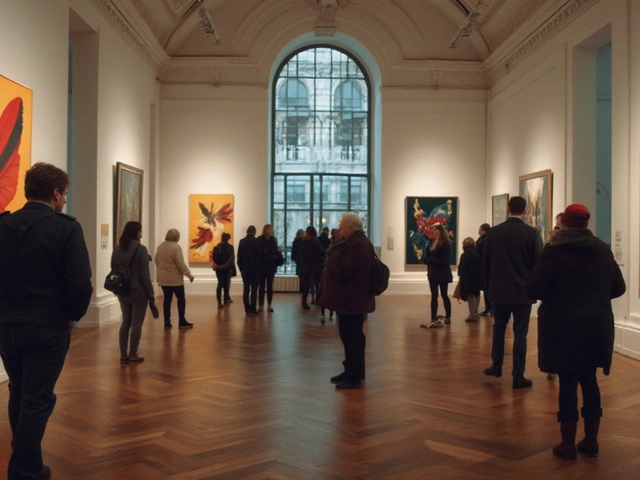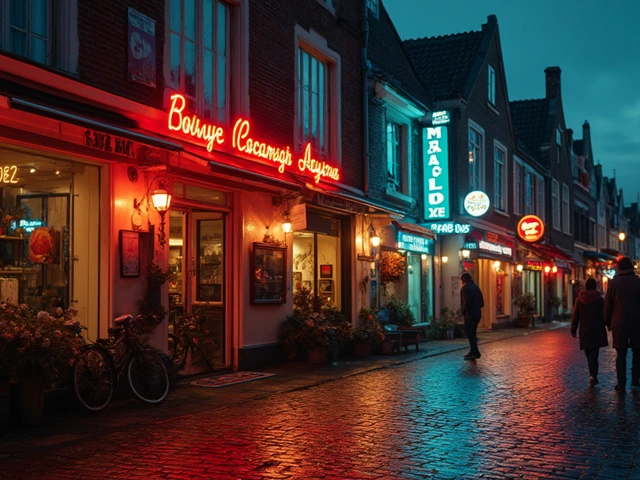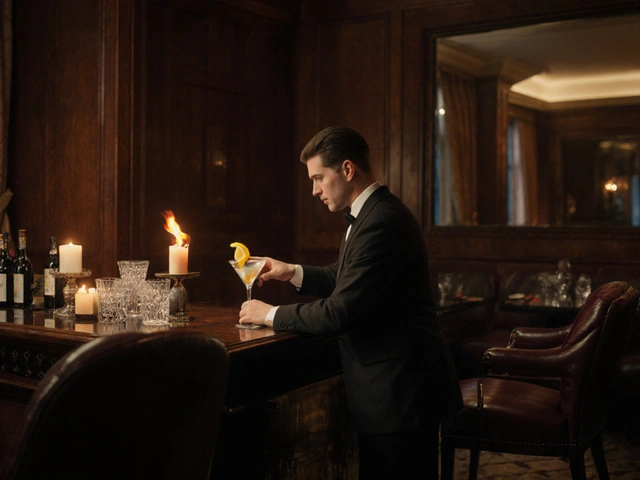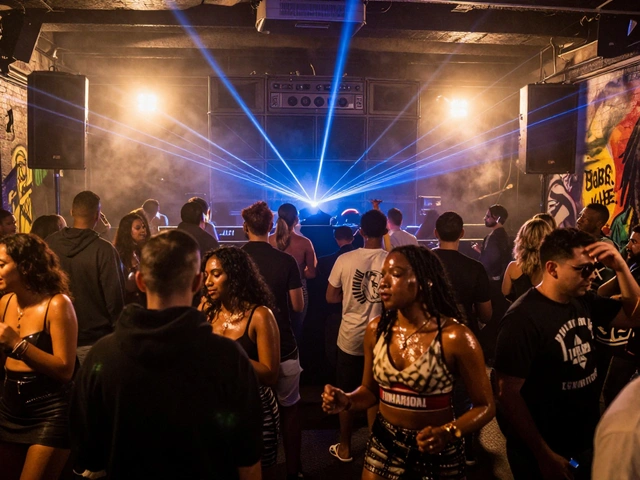Ever wondered how the jokes you hear on London comedy shows actually make it from a scribbled idea to a full‑blown episode that lands on the BBC or Channel 4? In London’s bustling comedy scene, the journey from sketch to screen follows a surprisingly systematic path, and you can trace every step right from the tiny rehearsal rooms in Soho to the high‑tech studios in White City. Here’s a quick look at comedy show creation as it happens across the city.
The spark: sketch writing in the capital
Everything starts with a Sketch Writing. Whether you’re a stand‑up comic jotting punchlines after a gig at The Comedy Store London, or a script‑writer drafting a sitcom premise in a shared office in Shoreditch, the goal is the same - capture a funny premise in a tight, 2‑minute format. In London, writers often meet over a pint at the historic Prince Albert in Victoria or grab a coffee at Monmouth Coffee in Covent Garden while they flesh out ideas. The city’s diverse neighbourhoods give you instant material: a commuter’s nightmare on the Tube, the quirks of a West End casting director, or the absurdities of a council meeting in Kensington.
From idea to script: the writers’ room
Once you have a handful of sketches, they graduate to the Writers’ Room. In London, many writers’ rooms are housed in creative hubs like BBC Studios in Marylebone or independent spaces such as Madlab Studios near Old Street. A typical session runs for two hours, with a group of 4‑6 writers riffing, polishing jokes, and mapping out an episode arc. The process is highly collaborative: one writer might specialise in character dialogue, another in physical comedy, and a third in cultural references that resonate with a London audience (think the latest pop‑up shop craze or a new Tube line opening).
Testing the material live
Before cameras roll, the material gets tested on a live audience. Venues like The Comedy Store London in Leicester Square, Soho Theatre, and the Pleasance in Islington host weekly “work‑in‑progress” nights. Performers run through the script, note which jokes land, and rewrite the rest. In these settings, audience reaction is immediate, and the energy of a packed London crowd shapes the rhythm of the show. Many hit sitcoms like “Fleabag” and “Derry Girls” (though set in Northern Ireland, it was piloted in a London comedy club) owe their punchy timing to these trial runs.
Production: from stage to screen
When the script is locked, production moves to a studio. BBC Comedy and Channel 4 have dedicated sound stages in White City and West London. Here, a crew of directors, cinematographers, set designers, and costume specialists bring the world of the sketch to life. For example, a sketch about a chaotic London market might be filmed on a set replicating Borough Market, complete with authentic vendor stalls and background chatter recorded on location. The production schedule typically follows a three‑day shoot: day one for block lighting and costume tests, day two for principal photography, and day three for pick‑ups and additional jokes.

Funding, grants, and new media opportunities
Creating a comedy show isn’t cheap, but the UK offers several funding routes. Creative England runs the “Screen Fund” which supports scripted comedy projects up to £100,000. The BFI also runs short‑film and series development grants that many sketch teams tap into. For indie creators, crowd‑funding on Kickstarter or Indiegogo can cover rehearsal space and equipment costs, especially if you can showcase a short teaser filmed at a local venue. Finally, platforms like YouTube and TikTok let you test material with a global audience; a viral sketch can attract the attention of London‑based commissioning editors looking for fresh voices.
Post‑production: editing the laughs
After filming, editors splice the footage, tighten the timing, and add laugh tracks if needed. In the UK, many comedies still use a small studio audience for live‑recorded laughter, but streaming platforms like Netflix UK prefer a more natural soundscape. Sound engineers might layer ambient noises - the rumble of a Tube train, the chatter of a pub - to ground the jokes in a recognisable London setting. Colour grading also enhances the visual tone: a gritty, documentary‑style look for a satire about council housing, or a bright, saturated palette for a family‑friendly sitcom.
Pitching and distribution: getting on air
The final step is selling the finished product. Writers and producers pitch to commissioning editors at BBC Comedy, Channel 4, or streaming services like Netflix UK and Amazon Prime Video. A strong pitch includes a short teaser, a polished pilot episode, and a clear audience profile - often “young professionals in London who enjoy fast‑paced, culturally‑savvy humor.” If commissioned, the show may debut on a prime‑time slot, be released in a binge‑able batch, or even start as a web‑series on YouTube before moving to broadcast.
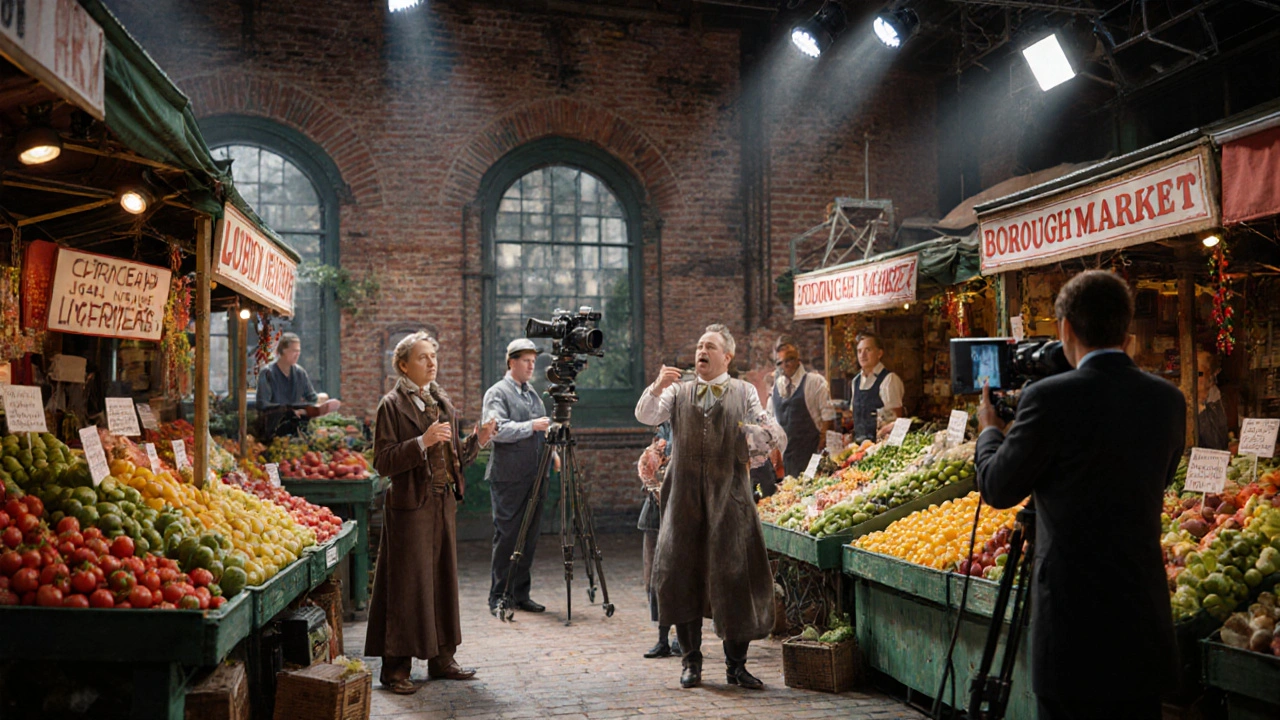
Checklist for aspiring comedy creators in London
- Write at least 10 distinct sketches or episode ideas per month.
- Join a local writers’ group - Meetup.com hosts several London‑based comedy writing meetups.
- Schedule a live test night at a venue such as The Comedy Store or Soho Theatre.
- Build a network with production assistants from BBC Studios or Channel 4’s comedy department.
- Create a concise pitch deck (one‑page logline, character bios, sample script).
- Research commissioning windows - BBC typically accepts pitches in Q1 and Q3, Channel 4 in Q2 and Q4.
- Secure a UK‑based agent (e.g., United Agents) for representation.
- Stay aware of London’s cultural moments - festivals, political events, and new Tube lines often spark fresh material.
Sketch vs. Sitcom: a quick comparison
| Aspect | Sketch Comedy | Sitcom |
|---|---|---|
| Typical Length | 2‑5 minutes per piece | 22‑30 minutes per episode |
| Writing Cycle | Rapid - weekly idea to performance | Longer - series arc, season planning |
| Primary Venues (London) | The Comedy Store, Soho Theatre, Pleasance | BBC Studios, Channel 4, Netflix UK |
| Commissioning Body | Often self‑funded or festival‑driven | BBC Comedy, Channel 4, streaming services |
| Audience Testing | Live club audience feedback | Screen tests, focus groups, analytics |
Common pitfalls and how to avoid them
Even with a solid process, many creators stumble. One frequent mistake is over‑relying on inside jokes that only true Londoners get - broader appeal is needed for national broadcast. Another is under‑estimating the importance of a tight script; comedy loses its edge when jokes linger. Finally, don’t ignore the business side: clear contracts with performers and proper copyright registration protect your work.
Next steps: from your notebook to the screen
If you’re sitting with a notebook full of punchlines right now, treat it as the seed. Book a slot at a local open‑mic, join a writing circle, and start polishing your first sketch. Remember, London’s comedy ecosystem is a blend of tradition (the old‑school club circuit) and innovation (streaming platforms), so there’s room for every voice.
How long does it take to go from a sketch idea to a televised episode in London?
A rough timeline is 3‑4 months: 1 month for writing and work‑shopping, 1 month for live testing and revisions, 1 month for production, and a few weeks for post‑production and pitching.
Which London venues are best for testing new comedy material?
The Comedy Store, Soho Theatre, Pleasance, and Battersea Arts Centre all run regular work‑in‑progress nights that attract industry scouts.
Do I need a talent agent to pitch a comedy show to the BBC?
It’s not mandatory, but an agent from United Agents or Independent Talent can open doors and navigate commissioning windows more efficiently.
Can a sketch show be turned into a sitcom?
Yes - many successful sitcoms started as recurring sketches (e.g., “The Office” began as a BBC Radio 4 sketch before becoming a TV series).
What are the key differences between broadcasting on BBC Comedy vs. Channel 4?
BBC tends to favour more traditional, family‑friendly formats and offers a larger budget, while Channel 4 pushes edgier, experimental comedy and often targets younger audiences.

